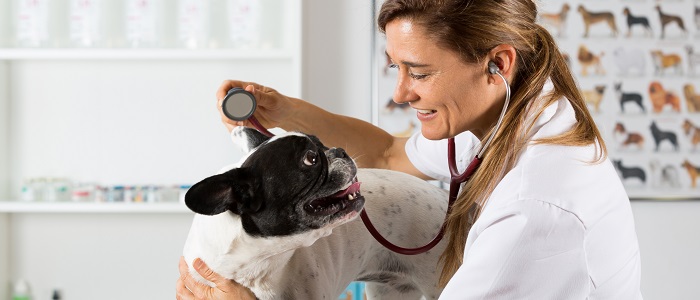Veterinarians are the healing hands for our non-human family members. Vets dedicate their lives to protecting those who cannot protect themselves, and pet owners put their trust in them to provide the best medical advice and care possible during their animals’ most vulnerable moments.
Like any other professional service, mistakes and losses can happen. In a vet business, however, emotions often run high and reactions can be very strong when something goes wrong. That’s why it’s extremely important for vets to manage risks as effectively as possible and ensure they’re covered with vet insurance in the event that something does happen. We discuss some common liability risks veterinarians face and how to proactively manage them to help avoid losses.
Prevent risk and protect yourself with vet insurance
Be aware of property conditions at all times
Your next injury could be a pee puddle away. Working with animals is unavoidably messy—make sure you’re cleaning up in a timely manner to avoid any unnecessary accidents. Depending on the time of year, snow and ice removal are important in managing slip, trip and fall hazards. It’s important to keep the floors dry during the rainy seasons as well.
Make sure you’ve got coverage in the event of property damage. If one of your expensive x-ray machines short circuits and causes a fire, it’s important to have the appropriate insurance protection like diagnostic machine coverage to get both your property repaired and the machine back up and running.
Maintain your work equipment and tools
Veterinary clinics are filled with state-of-the-art equipment and expensive medications. It’s a good idea to conduct routine maintenance checks to ensure your equipment and tools continue to operate safely.
For example, it’s suggested that veterinarians perform monthly maintenance on hydraulic exam tables to avoid the hydraulic cylinder weakening. This maintenance is quick and easy, and helps prevent potential damage to humans and animals, damage that could lead to a malpractice issue.
Implement a strong loss prevention system
The same state-of-the-art equipment and expensive medication presents another potential liability—theft. These tools and medicines can be difficult to replace right away in the event of theft or major property damage. To protect your business from potential losses, consider installing closed circuit television (CCTV) cameras or other security systems around your property, keeping the lights on overnight and securing expensive and easily transportable goods anytime the office is unattended.
Get the coverage you need
Preventative measures can only take you so far—you need to be prepared in the event of an error or a loss. Insurance coverage is just as important for veterinarians as it is for any other small business. Make sure your policy is customized to meet all of your business’ unique needs. Some important areas of coverage for veterinarians include:
- Property and building (including leased or owned equipment such as x-ray machines)
- Coverage for clients’ animals while on your property
- Voluntary compensation
- Liability and malpractice coverage
- Legal expenses to cover civil suits
- Auto coverage for business vehicles
Being prepared can help manage risks in your veterinary business, but the unexpected can still happen. The best way to protect your business is through the help of an insurance professional who can guide you on the specific coverage you need. Contact a broker today to find out how Northbridge Insurance’s tailored package for vets can help protect your business.




